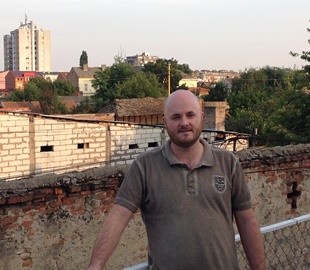
September 2016—The Serbian Government has made strides in supporting LGBTI rights, most visibly by permitting the Belgrade Pride Parade to take place in 2014 and 2015. The recent parades were largely peaceful, in stark contrast to several previous years when threats of violence caused the event’s cancellation. Though the recent parades were successful for the most part, a number of issues still exist.
Seventy-two percent of LGBTI people surveyed recently in Serbia had been verbally harassed or abused because of their sexual orientation or gender identity, 23 percent had suffered physical violence, and 51 percent had experienced discrimination, according to the latest opinion poll carried out by the U.S.-based National Democratic Institute.
In 2004, when several LGBTI activists from Sabac in Western Serbia established the Rainbow Association, the public’s acceptance of LGBTI persons was worse than the results from the latest polling data. And in 2001, the first time two Belgrade-based LGBTI organizations attempted to hold a Gay Pride Parade, the event collapsed when a huge crowd of opponents attacked the participants, injuring several.
From a policy and legal perspective, it was not until 2002 that the Government of Serbia took the first step and adopted legislation specifically aimed at protection of LGBTI rights. At the time, the official medical textbook still classified homosexuality as a “sexual deviation and disorder.”
The Rainbow Association has been working tirelessly since its inception to improve the position and visibility of the LGBTI community throughout Serbia. They provide psychological and legal support to around 3,200 LGBTI people a year and HIV/AIDS testing for around 1,100 people. Rainbow trained almost 1,000 staff from social welfare centers to work with the LGBTI population, and cooperated with the police to establish local emergency phone lines for LGBTI persons and their families.
In 2014, Rainbow extended its programs further and partnered with a USAID-funded project, Civil Society Forward, to establish Moonrise Hostel, a social enterprise that employs members of the LGBTI population who have suffered violence or discrimination and/or have had to leave their homes.
Milutin Pantelic, from a village near Sabac, spent eight months working at Moonrise in 2014.
“I had to leave home because my family was ashamed of me, and my brother beat me a few times. I was desperate,” says Pantelic. “I thought I was the only person in the world facing this type of problem. I tried to commit suicide and ended up in a mental health institution, where they realized I did not belong there. I heard about Rainbow from a doctor in Sabac, and called Aleksandar, Rainbow’s director. I was the happiest person in the world when I realized I was not the only one in the world, that there are other people like me and that they have normal lives and professions, and that some of them are open about their sexuality.”
In the hostel, Pantelic did everything from cleaning and laundry to working with the guests. “The part of the job that I liked the best was my contact with people. I think I am good at it,” he says. “I am so thankful to Rainbow and its staff for accepting me, for giving me a chance and for helping me find a job. How stupid I was to think of suicide … life is so precious, so beautiful.”
Pantelic now works with a printing company in Sabac where, he happily points out, his co-workers easily accept him and his self-confidence has soared. He also volunteers at Rainbow when he has time.
“Our goal is not to keep long-term staff. We try to help them primarily to feel safe, to become aware of their rights and find regular jobs,” says Aleksandar Prica, Rainbow’s director. “I believe in the protection of human and LGBTI rights only when accompanied with economic independence—it is what we are trying to provide with the hostel. When people are independent and self-confident, they can fight for their position on their own.”
USAID's Civil Society Forward project, which ended in April 2014, was a two-year activity implemented by the Institute for Sustainable Communities. It strengthened the effectiveness and sustainability of the civil society sector in Serbia by supporting local advocacy initiatives, grassroots organizations, and local activism.
LINKS
Follow @USAIDSerbia, on Facebook, on Flickr, on YouTube







Comment
Make a general inquiry or suggest an improvement.